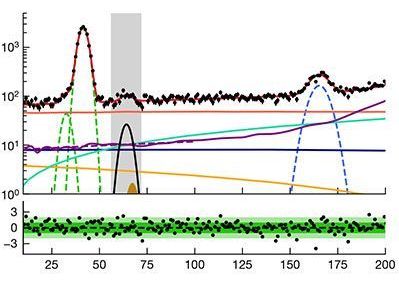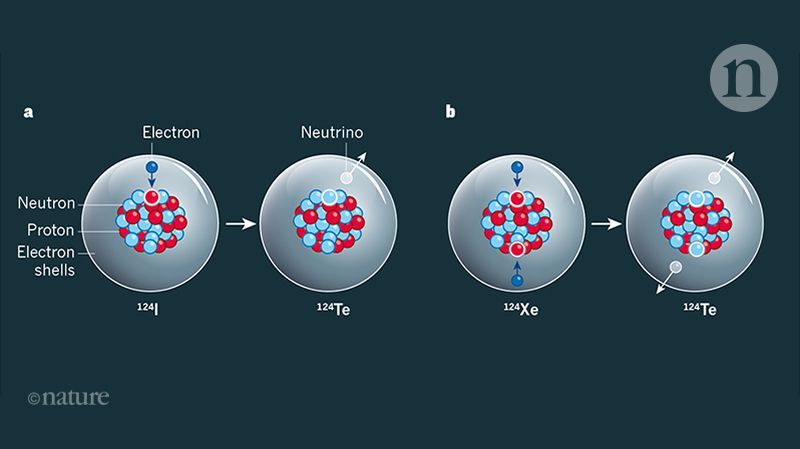From the point of view of nuclear theory, the decay rates of both two-neutrino and neutrinoless double electron capture can be connected to quantities called nuclear matrix elements. Such quantities contain information about nuclear structure that is extracted from nuclear models and can be applied by researchers in the field of nuclear-structure theory.
For half a century, our view of the world has been based on the standard model of particle physics. However, this view has been challenged by theories that can overcome some of the limitations of the standard model. These theories allow neutrinos to be Majorana particles (that is, they are indistinguishable from their own antiparticles) and predict the existence of weakly interacting massive particles (WIMPs) as the constituents of invisible ‘dark matter’ in the Universe. Majorana neutrinos mediate a type of nuclear decay called neutrinoless double-β decay, an example of which is neutrinoless double electron capture. A crucial step towards observing this decay is to detect its standard-model equivalent: two-neutrino double electron capture. In a paper in Nature, the XENON Collaboration reports the first direct observation of this process in xenon-124 nuclei, using a detector that was built to detect WIMPs.

